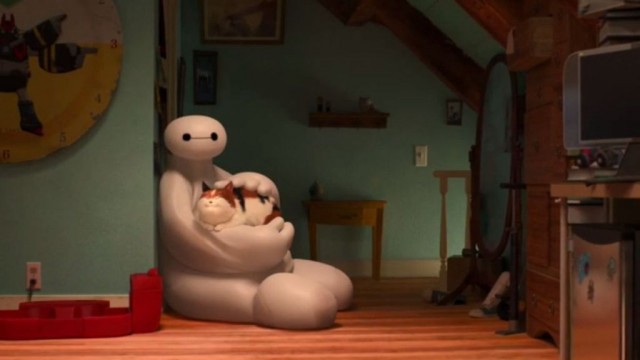In Which I Help Economists Become “Un-Baffled” About America’s Dropping Fertility Rate

Today, The Guardian asks the question Why Aren’t There More Babies? US Fertility Rate Declines, Economists Baffled.
I have taken it upon myself to un-baffle these economists. Here we go.
There were only 3.9m births in the US in 2013, according to the report, down about 1% from 2012. The general fertility rate also declined 1% in 2013 to another record low: 62.5 per 1,000 women aged 15–44.
Okay, as I noted yesterday, age ranges are important. I understand that you’re counting every person of potential fertile age, but you’re also skewing your statistic. Teenage pregnancy in the US has “hit historic lows,” and it would make much more sense to examine births per 1,000 women aged, say, 21–44. (I’ll give you all the way up to 44.)
What’s the statistic then? Slightly better than 63/1000 but still declining? Got it.
There’s another reason we need more babies: to balance out the aging population. As a good cautionary tale, look at Japan: in 2014, more adult diapers were sold in Japan than baby diapers.
No, no, no, you heard it wrong. We don’t need more babies, we need more Baymax. As in, the fictional healthcare robot designed to care for an aging population. We desperately need more Baymax, and we need him to be real.
Also, there are many reasons why more people could be buying adult diapers than baby diapers. Maybe everyone’s doing elimination communication. Maybe they’re doing cloth. Don’t underestimate the vigil of kids who grew up under the celebratory terror of Earth Day and the yearly reminder that disposable diapers and styrofoam cups might someday destroy the planet.
Remember 2007? Houses were cheap, unemployment numbers were low and the fertility rate was at its highest. When the music stopped, so did the optimism — and the babies.
Thanks for giving me that link so I could go check and see what the US general fertility rate was in 2007.
69.5 babies per 1,000 women.
What’s the current general fertility rate? 62.5 babies per 1,000 women.
EVERYBODY PANIC.
Tweets on birth control increased by 23% on the day after each new episode of 16 and Pregnant, according to the paper’s authors. Is that enough to affect the national birthrate? There’s no way to know.
Twitter has been around since 2006, so there is no excuse to not know how it works and how it might affect the national birthrate. Obviously we are all tweeting instead of having babies, just like we’re all binge-watching Netflix instead of having babies.
Easy access to all seven seasons of Breaking Bad may be one reason why a country’s birth rate falls, if several studies are to be believed.
YOU ARE KIDDING ME.
Okay, economists, here’s the deal. Have you seen the US lately? It is not a happy place, right now. We have opportunity beyond imagination, we can become Vine stars or eat Pizza Hut pizza where the crust is made out of Doritos, but we are also faced every day with our country’s inhumane treatment of its citizens and its guests.
Combine that with the idea that young people are indebted and with lower salaries than previous generations, that birth control works more often than stable relationships, and that our employers are both subtly and overtly suggesting we put off the childbearing thing for a while, and you shouldn’t be surprised that we’re having slightly fewer babies.
Also, our maternity leave policies are THE WORST in THE WORLD. (Technically, the second worst.) Don’t get me started on pumping breast milk in a toilet stall, childcare that costs more than college, or 24-hour daycares.
It’s not the Netflix. You know who binge-watches a lot of that Netflix? New parents, staying up with their babies. The ones who are weighing whether they want to use one of their seven or three or NONE sick days or whether they’ll be able to suck it up and go in to work the next morning.
Slightly fewer babies is okay. We learned that in school, when they told us we were using too much stuff and were going to destroy the earth.
63 babies per 1,000 women, and a Baymax healthcare robot for everyone, sounds fantastic.
Support The Billfold
The Billfold continues to exist thanks to support from our readers. Help us continue to do our work by making a monthly pledge on Patreon or a one-time-only contribution through PayPal.
Comments